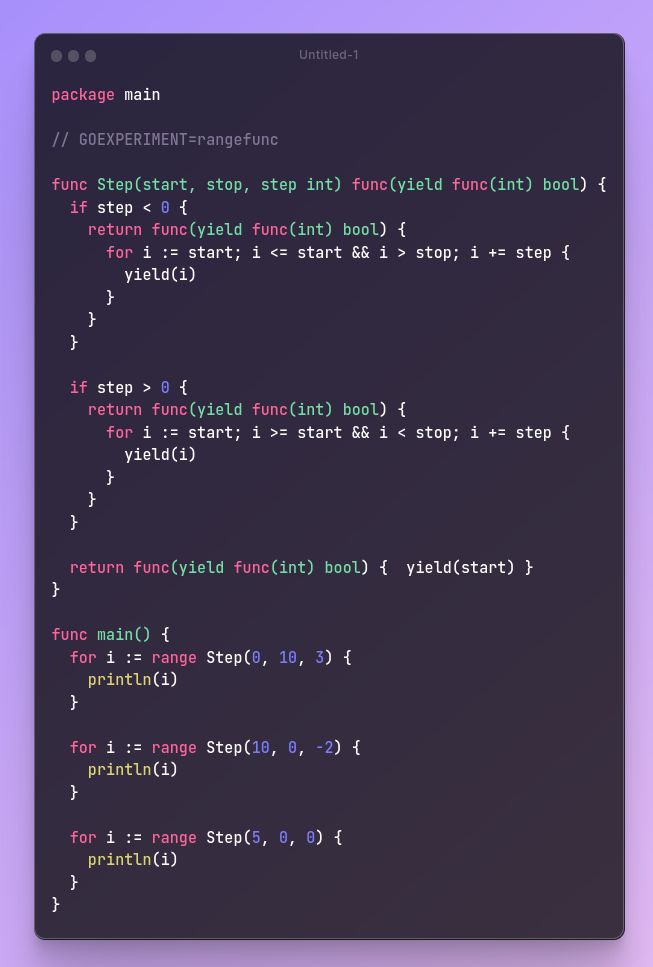receieveFile())? 🤔
@stigatle@yarn.stigatle.no @prologic@twtxt.net testing 1 2 3 can either of you see this?
I’m seeing GETs like this over and over again:
"GET /external?nick=lovetocode999&uri=https://vuf.minagricultura.gov.co/Lists/Informacin%20Servicios%20Web/DispForm.aspx?ID=8375144 HTTP/1.1" 200 35861 17.077914ms
always to nick=lovetocode999, but with different uris. What are these calls?
@prologic@twtxt.net There are a lot of logs being generated by yarnd, which is something I haven’t seen before too:
Jul 25 14:32:42 buc yarnd[1911318]: [yarnd] 2024/07/25 14:32:42 (162.211.155.2) "GET /twt/ubhq33a HTTP/1.1" 404 29 643.251µs
Jul 25 14:32:43 buc yarnd[1911318]: [yarnd] 2024/07/25 14:32:43 (162.211.155.2) "GET /twt/112073211746755451 HTTP/1.1" 400 12 505.333µs
Jul 25 14:32:44 buc yarnd[1911318]: [yarnd] 2024/07/25 14:32:44 (111.119.213.103) "GET /twt/whau6pa HTTP/1.1" 200 37360 35.173255ms
Jul 25 14:32:44 buc yarnd[1911318]: [yarnd] 2024/07/25 14:32:44 (162.211.155.2) "GET /twt/112343305123858004 HTTP/1.1" 400 12 455.069µs
Jul 25 14:32:44 buc yarnd[1911318]: [yarnd] 2024/07/25 14:32:44 (168.199.225.19) "GET /external?nick=lovetocode999&uri=http%3A%2F%2Fwww.palapa.pl%2Fbaners.php%3Flink%3Dhttps%3A%2F%2Fwww.dwnewstoday.com HTTP/1.1" 200 36167 19.582077ms
Jul 25 14:32:44 buc yarnd[1911318]: [yarnd] 2024/07/25 14:32:44 (162.211.155.2) "GET /twt/112503061785024494 HTTP/1.1" 400 12 619.152µs
Jul 25 14:32:46 buc yarnd[1911318]: [yarnd] 2024/07/25 14:32:46 (162.211.155.2) "GET /twt/111863876118553837 HTTP/1.1" 400 12 817.678µs
Jul 25 14:32:46 buc yarnd[1911318]: [yarnd] 2024/07/25 14:32:46 (162.211.155.2) "GET /twt/112749994821704400 HTTP/1.1" 400 12 540.616µs
Jul 25 14:32:47 buc yarnd[1911318]: [yarnd] 2024/07/25 14:32:47 (103.204.109.150) "GET /external?nick=lovetocode999&uri=http%3A%2F%2Fampurify.com%2Fbbs%2Fboard.php%3Fbo_table%3Dfree%26wr_id%3D113858 HTTP/1.1" 200 36187 15.95329ms
I’ve seen that nick=lovetocode999 a bunch.
watch -n 60 rm -rf /tmp/yarn-avatar-* in a tmux because all of a sudden, without warning, yarnd started throwing hundreds of gigabytes of files with names like yarn-avatar-62582554 into /tmp, which filled up the entire disk and started crashing other services.
@prologic@twtxt.net I’m still getting this crap:
abucci@buc:~/yarnd/yarn$ ls -lh /tmp/yarnd-avatar-*
-rw------- 1 abucci abucci 863M Jul 25 14:19 /tmp/yarnd-avatar-1594499680
-rw------- 1 abucci abucci 7.8G Jul 25 14:19 /tmp/yarnd-avatar-2144295337
-rw------- 1 abucci abucci 9.8G Jul 25 14:19 /tmp/yarnd-avatar-2334738193
-rw------- 1 abucci abucci 10G Jul 25 14:14 /tmp/yarnd-avatar-2494107777
-rw------- 1 abucci abucci 9.5G Jul 25 13:59 /tmp/yarnd-avatar-2619243454
-rw------- 1 abucci abucci 11G Jul 25 14:04 /tmp/yarnd-avatar-2922187513
-rw------- 1 abucci abucci 7.5G Jul 25 14:14 /tmp/yarnd-avatar-349775570
-rw------- 1 abucci abucci 10G Jul 25 14:09 /tmp/yarnd-avatar-3640724243
-rw------- 1 abucci abucci 901M Jul 25 14:19 /tmp/yarnd-avatar-3921595598
-rw------- 1 abucci abucci 9.5G Jul 25 13:59 /tmp/yarnd-avatar-609094539
-rw------- 1 abucci abucci 9.3G Jul 25 14:04 /tmp/yarnd-avatar-755173392
-rw------- 1 abucci abucci 7.9G Jul 25 14:09 /tmp/yarnd-avatar-984061000
Something like 100 Gbytes of this junk has accumulated since I updated and re-started the server. I’m now running the latest version of yarnd, so the update did not fix the problem. Something else is going wrong.
How are temporary files growing to 10 Gbytes in size? The name of the file is “yarn-avatar”, but why would avatars be so large?
watch -n 60 rm -rf /tmp/yarn-avatar-* in a tmux because all of a sudden, without warning, yarnd started throwing hundreds of gigabytes of files with names like yarn-avatar-62582554 into /tmp, which filled up the entire disk and started crashing other services.
@prologic@twtxt.net Alright, running yarnd 0.15.1 now. I stopped my hack so we’ll see if the VPS gets clogged with junk 😆
watch -n 60 rm -rf /tmp/yarn-avatar-* in a tmux because all of a sudden, without warning, yarnd started throwing hundreds of gigabytes of files with names like yarn-avatar-62582554 into /tmp, which filled up the entire disk and started crashing other services.
abucci@buc:~/yarnd/yarn$ make preflight
Checking Go version ... [ ERR ]
Go 1.16+ is required, found go1.22.5
FATAL: 🙁 preflight failed
make: *** [Makefile:33: preflight] Error 1
🤔
watch -n 60 rm -rf /tmp/yarn-avatar-* in a tmux because all of a sudden, without warning, yarnd started throwing hundreds of gigabytes of files with names like yarn-avatar-62582554 into /tmp, which filled up the entire disk and started crashing other services.
@prologic@twtxt.net 0.15.1, looks like.
There are also a bunch of log messages scrolling by. I’ve never seen this much activity in the log:
Jul 25 01:37:39 buc.ci yarnd[829]: [yarnd] 2024/07/25 01:37:39 (149.71.56.69) "GET /external?nick=lovetocode999&uri=https://pagez.co.uk/services/your-own-100-fully-owned-online-vi>
Jul 25 01:37:39 buc.ci yarnd[829]: [yarnd] 2024/07/25 01:37:39 (162.211.155.2) "GET /twt/112135496802692324 HTTP/1.1" 400 12 826.65µs
Jul 25 01:37:40 buc.ci yarnd[829]: [yarnd] 2024/07/25 01:37:40 (51.222.253.14) "GET /conv/muttriq HTTP/1.1" 200 36881 20.448309ms
Jul 25 01:37:40 buc.ci yarnd[829]: [yarnd] 2024/07/25 01:37:40 (162.211.155.2) "GET /twt/112730114943543514 HTTP/1.1" 400 12 663.493µs
Jul 25 01:37:40 buc.ci yarnd[829]: [yarnd] 2024/07/25 01:37:40 (27.75.213.253) "GET /external?nick=lovetocode999&uri=http%3A%2F%2Falfarah.jo%2FHome%2FChangeCulture%3FlangCode%3Den>
Jul 25 01:37:40 buc.ci yarnd[829]: time="2024-07-25T01:37:40Z" level=error msg="http://bynet.com.br/log_envio.asp?cod=335&email=%21%2AEMAIL%2A%21&url=https%3A%2F%2Fwww.almanacar.c>
Jul 25 01:37:40 buc.ci yarnd[829]: [yarnd] 2024/07/25 01:37:40 (162.211.155.2) "GET /twt/111674756400660911 HTTP/1.1" 400 12 545.106µs
Jul 25 01:37:40 buc.ci yarnd[829]: time="2024-07-25T01:37:40Z" level=warning msg="feed FetchFeedRequest: @<lovetocode999 http://alfarah.jo/Home/ChangeCulture?langCode=en&returnUrl>
Jul 25 01:37:41 buc.ci yarnd[829]: [yarnd] 2024/07/25 01:37:41 (162.211.155.2) "GET /twt/112507964696096567 HTTP/1.1" 400 12 838.946µs
Something really weird is going on?
I deleted them all right before I sent my previous message, and already, a few minutes later, there are two more:
abucci@buc:~$ du -sh /tmp/yarnd-avatar-3*
1.8G /tmp/yarnd-avatar-3122347915
2.4G /tmp/yarnd-avatar-3533381443
What is this?
Base: 1.75 miles, 00:09:42 average pace, 00:16:58 duration
had to stop for code brown.
#running #treadmill
Je suis tellement fatigué de la bêtise humaine. 1/3, je croise forcément ces gens… Je ne peux m’empêcher de penser à mes élèves, mes MEILLEURS élèves, + assidûs et intelligents que les autres, qui ont laissé un proche au fond de la méditerranée… ne me parlez pas ce soir :/
Pinellas County - Mile time trial: 1.03 miles, 00:06:40 average pace, 00:06:51 duration
after the warm-up the humidity hit me and i realized i was drenched and i could not stop sweating. it was going to be rough, and it was. kept a pretty steady pace which was great… and around 0.70 miles i upchucked in my mouth a bit, which was oh so great, so i eased off the gas towards the end. overall very happy with the effort since normally i do this in the cooler and drier conditions. in addition i have not been doing much speed work so this is great.
76.2F feels like 84.6F with 93% RH and 73.7F dew point
#running
As I was writing my latest post on conscious consumption (https://www.davebucklin.com/play/2024/06/27/consumption.html), I learned of Dr. Bronner’s 5-to-1 cap on executive compensation (https://www.drbronner.com/pages/about).
Can anyone recommend and/or vouch for a Chrome/browser extension that lets me write rewrite rules for arbitrary links on a page? e.g: s/(www\.)?youtube.com\/watch?v=([^?]+)/tubeproxy.mills.io/play/\1 for example? 🤔
Referer is /post then consider that total bullshit, and ignore? 🤔
@prologic@twtxt.net Firefox 126.0.1 is my primary
Referer is /post then consider that total bullshit, and ignore? 🤔
@prologic@twtxt.net I was wondering if my reverse proxy could cause something but it’s pretty standard…
server {
listen 80; server_name we.loveprivacy.club;
location / {
return 301 https://$host$request_uri;
<a href="https://yarn.girlonthemoon.xyz/search?q=%23proxy_pass">#proxy_pass</a> http://127.0.0.1:8000;
}
}
server {
listen 443 ssl http2;
server_name we.loveprivacy.club;
ssl_certificate /etc/letsencrypt/live/we.loveprivacy.club/fullchain.pem;
ssl_certificate_key /etc/letsencrypt/live/we.loveprivacy.club/privkey.pem;
client_max_body_size 8M;
location / {
proxy_pass http://127.0.0.1:8000;
}
}
Hmm…
Jun 19 23:31:38 yarn_init.sh[61567]: [yarnd] 2024/06/19 23:31:38 (127.0.0.1:40254) “POST /post HTTP/
1.0” 200 0 3.402208ms
[…]Jun 19 23:31:39 yarn_init.sh[61567]: [yarnd] 2024/06/19 23:31:39 (127.0.0.1:40262) “GET /post HTTP/1.0” 404 729 123.474001ms
Unfortunately not on that front. Still the same 404 posting errors and oddly occasional login errors.
That’s why I was wondering if using Go 1.22.4 could be an issue. I don’t know how exactly. Only way to test is to rebuild it with an older version I guess, which is why I did the make clean in the first place. Old habits die hard lol.
@prologic@twtxt.net Righteo, so rookie error - I obviously had some untracked, rather important files for starting my pod and I ran a make clean. Why I originally had them in the git directory is anyone’s guess. Anyway it blew away those files including the database so that’s that. So your good self and @bender@twtxt.net etc - apologies but your profiles got nuked as well (as did my own but easily recreated).
Another thing I noticed which was the reason I ran make clean in the first place. I noticed my pod was being built with Go 1.22.4. Could this be a problem @prologic? preflight.sh actually errors out about it…
1.2 Kilofives
 ⌘ Read more
⌘ Read more
Some(one/thing) is going Berserk at my web server and some of their requests are "GET /etc/shadow HTTP/1.1" and "GET /.ssh/id_ed25519 HTTP/1.1" … I think they should try and POST some kind of sudo rm -rf /* while they’re at it; it would be funnier.
Une semaine de merde, de l’écologie et un projet de code: https://si3t.ch/log/2024-05-31-traces-1.txt
@bmallred@staystrong.run No I was trying the other one I got from logs, it’s missing the /user subdirectory:
"GET /twtxt.txt HTTP/1.1" 200 27110 "-" "nahongvita/0.1.0 (+https://staystrong.run/bmallred/twtxt.txt; @bmallred)"
I think it is a good addition. Similar to how the Fraidycat RSS reader works. Fraidyc.at also support twtxt, but have not seen any updates since 2021…
@movq@www.uninformativ.de It looks like this one actually reads the robots.txt … it did a couple of times over the past few weeks.
“GET /robots.txt HTTP/1.1” 304 0 “-” “Mozilla/5.0 AppleWebKit/537.36 (KHTML, like Gecko; compatible; GPTBot/1.0; +https://openai.com/gptbot)”
@prologic@twtxt.net 1. allow only members of your pod to submit feeds
- some kind of captcha (eew)
- probationary status after submittal which requires review of some sort
- rate limiting to slow down submissions from the same source
Après 1 semaine de pluie, j’ai le sentiment que le panneau pijuice 6W est insuffisant en situation nuageuse. Je fais d’autres tests car mardi la pluie sera de retour ! J’ai aussi un panneau 9W 6V voltaic-systems à tester par le suite.
- The “Story of my life” (the less serious answer)
- Being “The Black Sheep” from the old tale ? (the serious answer)
Pinellas County - Long run 3’(mod) [1’ rec]: 7.47 miles, 00:09:46 average pace, 01:13:02 duration
again practicing the 3’ on and 1’ off strategy. thinking i will have to just be flexible and adapt it as the day goes on for PTC. bit of a hot one out there today.
#running
I guess I’m not missing my GUI Web Browser yet. In fact, I think I’m enjoying this. 😆

I might even drop to TTY to try stuff I read about earlier today.
@movq@www.uninformativ.de Oh! Thank you for the link! I’m checking it right away!
I hope I don’t get slapped with a “HTTP/1.1 426 Upgrade Required” there as well.
As for Netflix and Co. I can do without for the time being. I guess I have binge watched enough content I feel like I miss missing it. 😂
@bender@twtxt.net Oh, That sounds delicious! B’Saha![1]
I’m Glad you’ve had quite the productive! All I remember of mine is three chapters of an old novel at the coffee shop aaand … Now I’m here, in front of a computer. Everything in between is just Blank 😅
[1] B’saha: Moroccan word for “With health!” (a literal translation) usually used as an equivalent for the French expression “Bon Appétit!” but also used as “Congratulation!”
Pinellas County - Long Run: 8.07 miles, 00:10:41 average pace, 01:26:18 duration
at about mile 3 i switched to 4’ on 1’ off. this was because my left knee started to act up. kept this up pretty well until a weird sharp pain at about 7.5 miles. walked it off a bit and tried again but called it when things did not feel right.
#running
Voidlinux : mes retours sont très positifs. 3 points : 1 - les paquets sont rapidement publiés, la vuln du paquet xz a donc été rapidement installée. 2 - Suite install de openssl en v3-3, authent 802.1x HS avec wpa_suppliant. J’ai dû rollback. 3 - Sur laptop HS mon écran scintille parfois quand la souris passe vers le bas de l’écran, étrange.
Been clearing out my pod a bit and blocking unwanted domains that are basically either a) just noise and/or b) are just 1-way (whose authors never reply or are otherwise unaware of the larger ecosystem)
Let me know if y’all have any other candidates you’d like me to add to the blocked domain list?
Pinellas County - Base: 1.01 miles, 00:09:52 average pace, 00:10:00 duration
@mckinley@twtxt.net, in your blog, I think a “line-heigh” of 1.5 (if I remember correctly you are setting it on the “body” on CSS) will make it more legible.
sloweb partie 1 : run_cmds. https://si3t.ch/log/2024-03-13-sloweb-part-1-run-cmds.txt
Supergroup
 ⌘ Read more
⌘ Read more
J’ai compté, il faudrait un peu plus de 2 semaines pour envoyer tout le livre 2 de dune au rythme d’1 SMS toutes les 5 5 minutes 👼
All #dune to read and enjoy original story: https://archive.org/details/frank-herberts-dune-saga-collection-books-1-6-by-frank-herbert
Go 1.22.0 introduces a new experiment for range functions. Have you tried them out? What do you think it can make easier to accomplish?

Sad to see moc removed from the official arch linux repos, but also cool to learn the debian project has been quietly patching it and keeping it up to date in recent years. Long live the music on console player. (And debian!) :-)
I finally found the NASM assembler.
I had heard that name before, many times, but somehow never looked into it. Weird. 🤨🤔
This is the kind of program I was looking for.
- It is free software. Especially in the DOS ecosystem, free/libre software is a very scarce resource.
- It’s a small command line program, not a huge behemoth.
- Documentation appears to be well written.
- It can even cross-compile DOS binaries from Linux.
There’s something really annoying me on #openbsd httpd: to set custom headers, one need to use relayd. Yes, it works, but it is so complex for this task. And it breaks logs for analysis with goaccess or webalizer: the forwarded log format put the original IP at the end, but there is still 127.0.0.1 at the beginning :/. httpd should be able to set headers. ‘hsts’ instruction already does
Pinellas County - 5 x 1mi [1’30”]: 7.66 miles, 00:08:52 average pace, 01:07:54 duration
during the warm-up my legs felt so heavy. the first interval was a bit rough with the legs, but each afterwards was smooth. did not actually feel too hard which is a great sign i think.
#running
Pinellas County - 1 mile [1’30”]: 5.34 miles, 00:08:42 average pace, 00:46:26 duration
another great run. i may have pushed it a bit too hard on the last interval towards the end because i noticed my breathing had become ragged.
#running
Recovery: 1.00 miles, 00:10:29 average pace, 00:10:29 duration
Pinellas County - Long Run: 16.66 miles, 00:09:16 average pace, 02:34:24 duration
whew, rough plan was 3 miles warm-up, then 1 mile on/off at 8:30 pace, then cool down the rest of the way. little bit fast for some intervals, and boy did that bridge wipe me out (the third interval?). during the cool down had to stop to find tissues and also going up the final bridge. not trying to kill myself being i still have parental duties with it being christmas eve and all. overall it was a great outing if i must say so.
#running
Pinellas County - 10 x 1km (mod) [1’30”]: 9.05 miles, 00:08:41 average pace, 01:18:36 duration
did not think i would complete 10 reps but went pretty well once i was moving. kept it controlled for the most part and ground it out.
#running